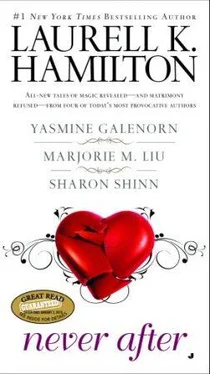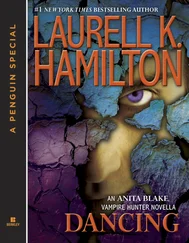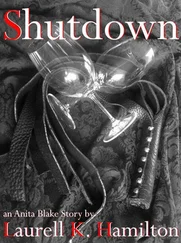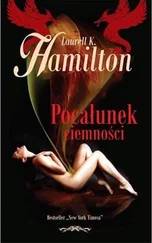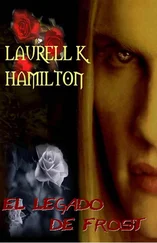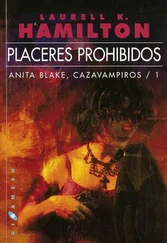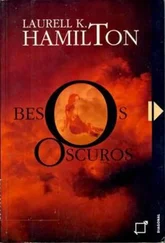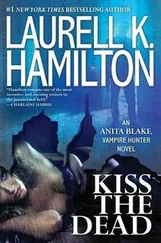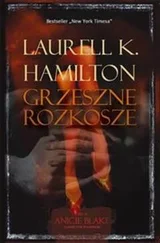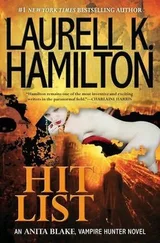
Never After
by
Laurell K. Hamilton, Yasmine Galenorn, Marjorie M. Liu, Sharon Shinn
Can He Bake a Cherry Pie?
LAURELL K. HAMILTON
The Earl of Chillswoth was a pervert, and everyone knew it. Elinore knew it, and the sensation of his age-spotted hand over her pale young one frightened her more than anything had ever frightened her before, because the earl, though a known abuser of every kind of vice, was wealthy and well connected at court. Her father was neither of these things, because of the small matter of a disagreement with the current king’s father about a war. The war was long over, the king’s father long dead, but Elinore’s father longed to regain his standing at court. It wasn’t just for himself, he reasoned, but for his two sons. The fact that the price for saving the family reputation was his only daughter’s health, happiness, and body didn’t seem to bother her father. Elinore found that… disappointing.
He’d never been particularly affectionate, except in that absent way that fathers have, but she had thought, truly, that he loved her as a daughter. The fact that he had already agreed to marry her to the aging earl, with his hungry eyes and wet lips and overly familiar hands, without so much as, I’m sorry, Elinore , had made her realize that to her father, she was not real. She was not a son, and thus was only something to negotiate with, to use as a bribe, like land, or a fine horse. She was property. Legally, she knew she was, but she hadn’t realized that her own father believed it.
Her mother had been deaf to her pleas, and even now sat smiling at the other end of the huge banquet table. It was the celebration for midsummer. It was a time of games, dancing, bright colors, and looking the other way when some of the young girls and men went off by themselves. Many a hurried marriage followed midsummer. Elinore had always been a good girl. She had refused all those handsome young men. She had been dutiful, and pure, and everything a daughter should be. She had her mother’s long yellow hair; skin like milk that had never known a hard day in the sun. Her eyes were the color of cornflowers—by far her best feature, so her mother told her. She had her grandmother’s eyes—again, so she was told. Her grandmother had been a great beauty in her day, but sadly stubborn. Elinore was even named after that lost ancestress. She’d always been very unlike the dead grandmother. She had been pliable, and look where all that good behavior had gotten her.
The Earl of Chillswoth—“Call me Donald”—leered down the table at her. He was sitting by her father, not because he had the highest rank, but because he was the highest in favor at the distant court of the king. She did not wish to call him Donald, and she did not wish to have her father announce to all that she would be the earl’s fourth wife. Or was it fifth? Two of them had been as young as Elinore, and they had not lived to see twenty-five. One had died in childbirth, but no one wanted to talk about what happened to the last one. She’d heard whispers that the old man was becoming unable to perform, and so his desire of the flesh had turned to harder things. She did not understand everything that was meant by that sentence, but she understood enough to know that she did not want to be the earl’s fourth, or fifth, wife.
Elinore would rather have lived as an old maid, done her sewing, overseen the cooking, and done what a good wife does. Their keep was small enough, and the time hard enough, that she could actually cook, and sew, and do all the things that made a woman’s world. Many noble girls were fairly useless. Elinore liked to be busy, and because her desires were all women’s work, no one had ever objected.
She herself had helped arrange the tails on the peacocks, stuffed and cooked and brought lifelike to the table. The head cook had said, “Begging the miss’s pardon, but you have a fine eye and hand for the kitchen.”
Elinore had taken that for the high praise it was, and not been insulted in the least. She loved the big kitchen, and would have spent more time there if her parents had allowed. She’d been mostly forgotten until she was too old to be mistaken for a little girl. Then, suddenly, it was time to find a husband.
If only she had gone with Bernie Woodstock last midsummer. He had asked her first, but she’d refused, and now he was married to Lucy of Aberly, and they had their first child. Bernie was heir to a fine estate, not as fine as their own, but he and Lucy seemed happy enough, though the baby cried every time she visited. As Elinore watched her father call for silence, and begin to stand, how she wished, she so wished, she had gone off with Bernie last year. Once her father announced her engagement officially, it could not be undone without causing great disgrace to her family.
Elinore rose faster than her father, with his one bad knee from the long ago war. She stood in the silence, and her father said, “Elinore, it is not necessary for you to stand.”
“I wish to make an announcement, Father, a traditional announcement for midsummer.” She spoke hurriedly, afraid her nerve would fail her.
Her father smiled indulgently at her, probably thinking she would do the traditional maiden’s toast for this time of year, for she was still a maiden in every sense of the word.
“I will go rescue Prince True.” It was an old saying now, older than the war that had gotten her father in trouble. It was more fairy tale now than truth to most people, for it had been more than fifty years since he vanished. But once, Prince True had been heir to the whole kingdom. Yet as often happens in fairy stories, he had been arrogant and unkind to women. He had declared that women’s work was worthless, and only men, and their work, had value. One day, so the story went, a witch overheard him and challenged him to come to her cave. She told him she would prove to him that a woman was stronger than a man. He laughed at her. She accused him of cowardice, and, being a foolish prince, he went to accept her challenge. He was never seen again.
Many men tried to rescue him, but finally a body came back with a note that read, “Only a woman’s art can win the prince his freedom.” For many years after that, noble houses that had two daughters, or more, would make one or two of them learn to be a man. They learned weapons, and riding, and hunting, and all the things that make a hero a hero. They would ride off in their armor, and never be seen alive again. You could go to the edge of the first moat and gaze down upon the armored skeletons, complete with horses, that had been dashed to their deaths on the rocks below.
No one had tried to rescue the prince in a long time, because his father was now dead, his brother on the throne, and there was an idea that even if a rescue worked, the current king might not welcome his eldest brother’s return. But the idea that Prince True was held captive, young forever, tortured by the witch, would occasionally make some brave soul go out, and die.
Elinore had gazed upon the broken bodies once, with her brothers. She’d had nightmares for a week. But she knew the moment the earl cupped her breast with his horrible hand that she would rather die. She knew she could not run away, because her father would find her wherever she went, and anyone who helped her would be hurt. She’d learned that lesson from her cousin Matilda, who ran away once, and bore the scars on her back to this day. Matilda was married and the mother of three, but what had haunted Elinore was not the scars from the beating, but the death of the shepherd boy who had helped her cousin.
Читать дальше
